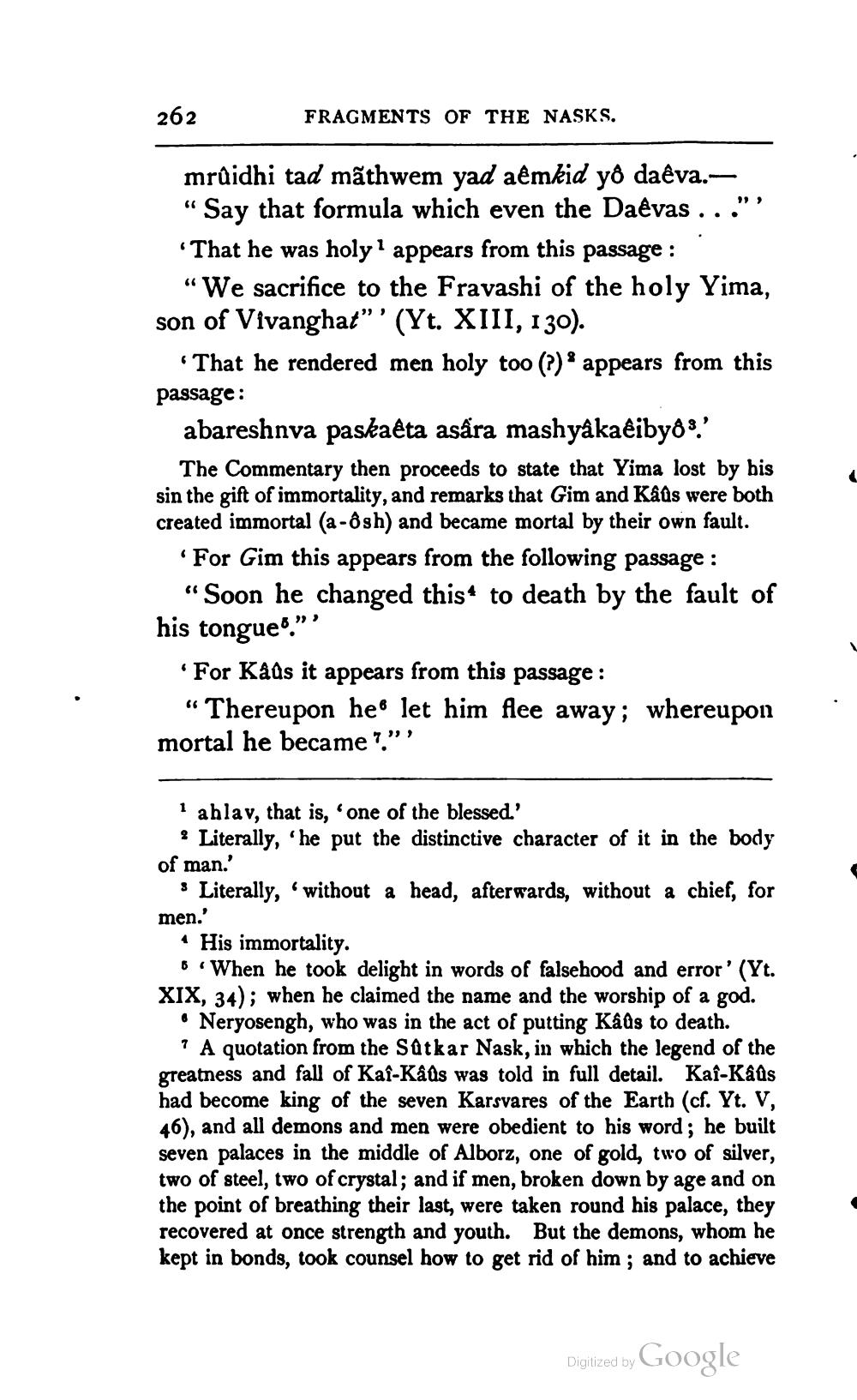________________
262
FRAGMENTS OF THE NASKS.
mrûidhi tad mãthwem yad aêmkid yo daêva.“Say that formula which even the Daėvas ..."' *That he was holy appears from this passage :
“We sacrifice to the Fravashi of the holy Yima, son of Vivanghať" ' (Yt. XIII, 130).
That he rendered men holy too (p) appears from this passage:
abareshnva paskaêta asåra mashyakaiby88.'
The Commentary then proceeds to state that Yima lost by bis sin the gift of immortality, and remarks that Gim and Kaus were both created immortal (a -ôsh) and became mortal by their own fault.
For Gim this appears from the following passage : "Soon he changed this to death by the fault of his tongue."
'For Kads it appears from this passage:
“Thereupon he let him flee away; whereupon mortal he became ?."'
1 ahlav, that is, one of the blessed.'
? Literally, he put the distinctive character of it in the body of man.'
Literally, without a head, afterwards, without a chief, for
men.'
• His immortality.
o'When he took delight in words of falsehood and error' (Yt. XIX, 34); when he claimed the name and the worship of a god.
• Neryosengh, who was in the act of putting Kålls to death.
? A quotation from the Sûtkar Nask, in which the legend of the greatness and fall of Kaf-Kâus was told in full detail. Kai-Kalls had become king of the seven Karsvares of the Earth (cf. Yt. V, 46), and all demons and men were obedient to his word; he built seven palaces in the middle of Alborz, one of gold, two of silver, two of steel, two of crystal; and if men, broken down by age and on the point of breathing their last, were taken round his palace, they recovered at once strength and youth. But the demons, whom he kept in bonds, took counsel how to get rid of him; and to achieve
Digitized by
Digitized by Google




